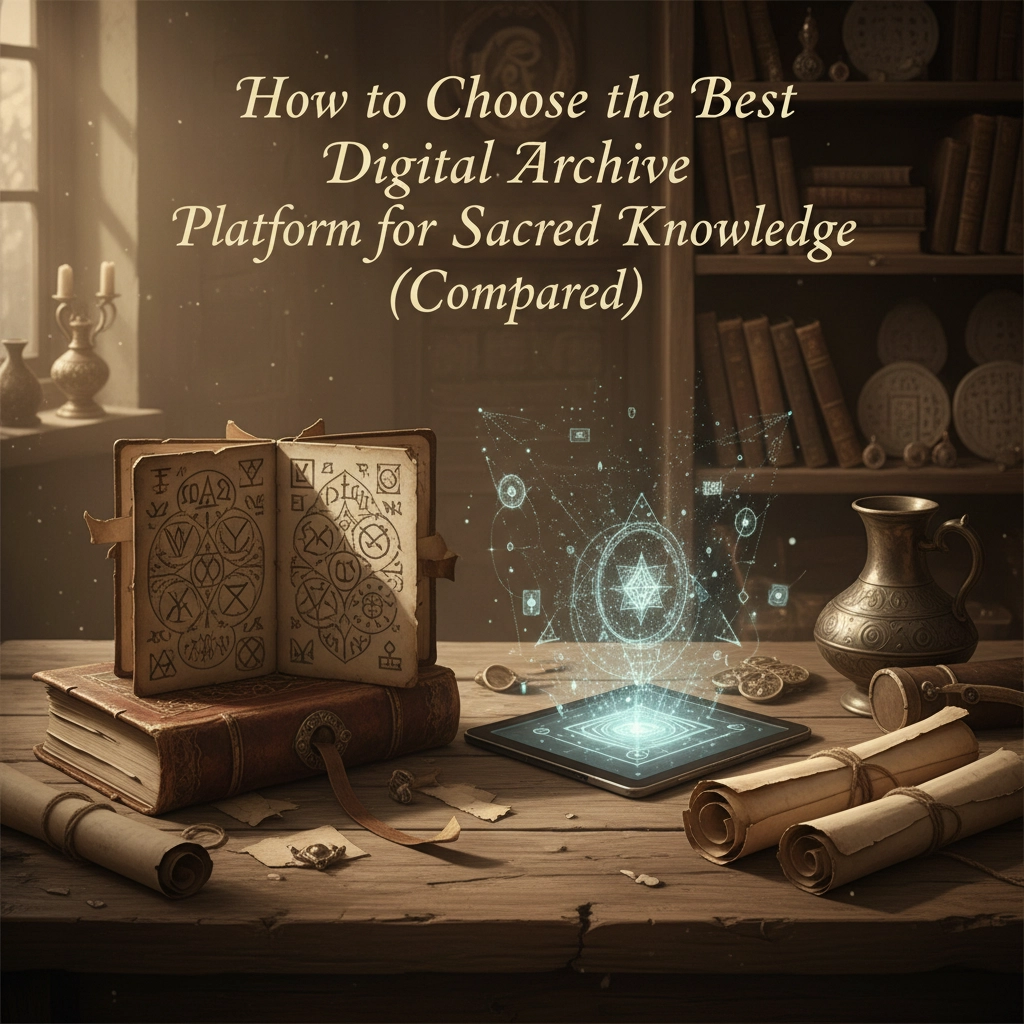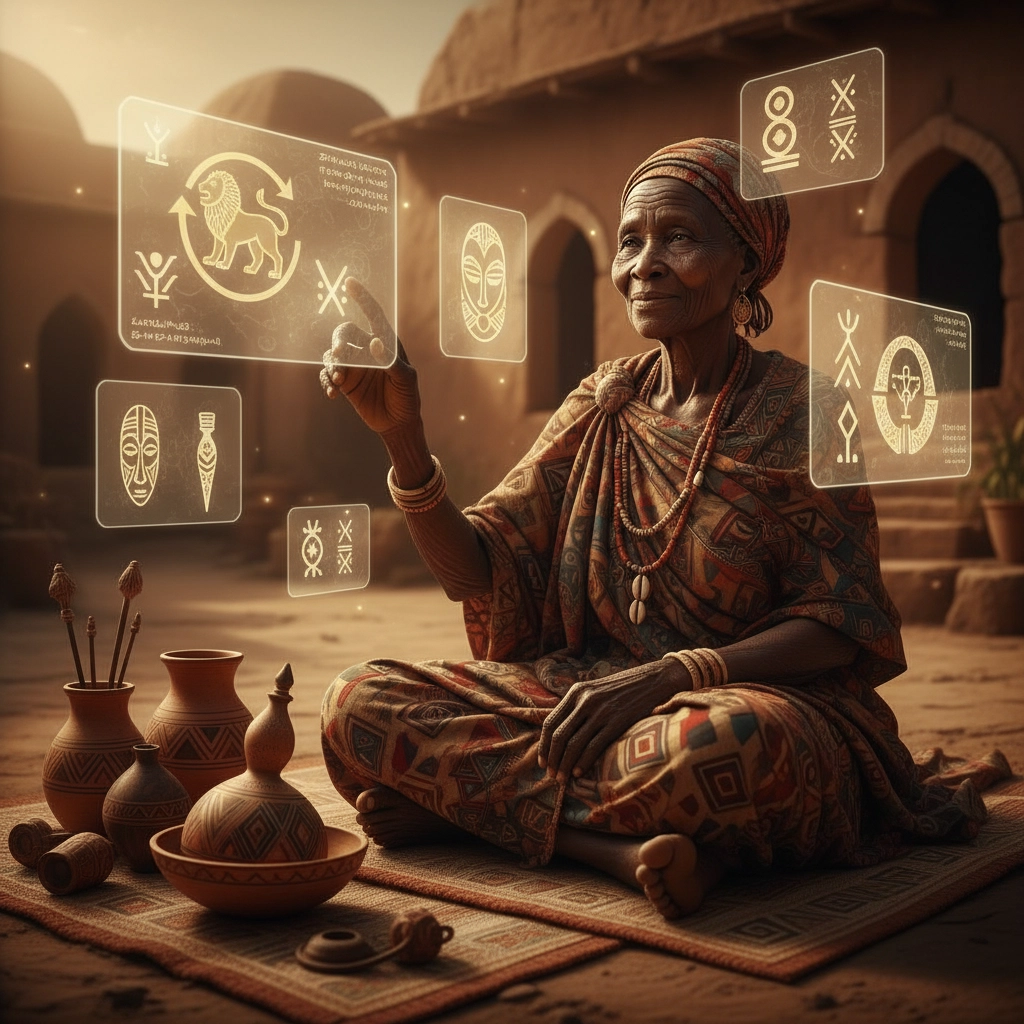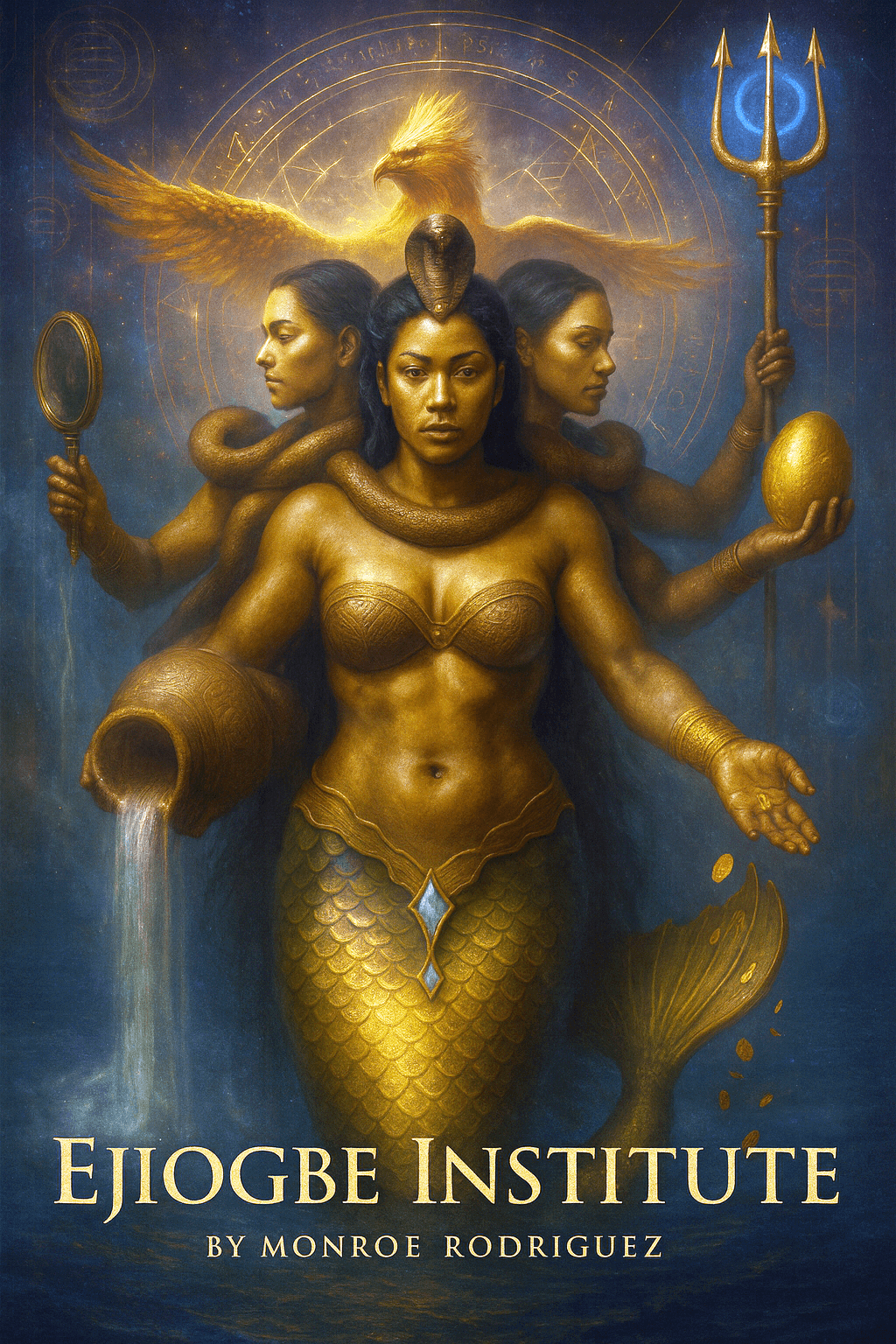
How to Choose the Best Digital Archive Platform for Sacred Knowledge (Compared)

Preserving sacred knowledge requires more than just technical excellence: it demands platforms that honor cultural protocols, respect community ownership, and safeguard ancestral wisdom for future generations. When choosing a digital archive platform for sacred knowledge, we face unique challenges that go far beyond typical storage and retrieval needs.
The digitization of sacred knowledge carries profound responsibility. Unlike conventional archives, these materials often involve complex access restrictions, cultural protocols, and deep community trust. Our ancestors' teachings, ceremonial practices, and spiritual guidance deserve platforms that understand their sacred nature.
Understanding the Sacred Nature of Cultural Archives
Sacred knowledge presents extraordinary considerations that standard archival systems often overlook. Cultural restrictions and complex access permissions form the foundation of how these materials must be handled. Different knowledge may require varying protection levels: some teachings meant only for community elders, others for initiated members, and still others for broader cultural education.
Many Indigenous communities express profound distrust of traditional archives due to historical mishandling of restricted materials. This skepticism stems from decades of cultural appropriation, misrepresentation, and lack of community control over their own heritage. Additionally, intellectual property concerns and orphaned works complicate preservation efforts, making platform choice even more critical.

The platform we choose must bridge technological capability with cultural sensitivity, ensuring that our elders' voices reach intended audiences while respecting sacred boundaries.
Platform Analysis: Finding the Right Foundation
Omeka: The Scholarly Standard
Omeka stands as the gold standard among scholarly communities, specifically designed by and for researchers, historians, and cultural institutions. This free content management system excels at creating searchable databases and interpretive digital collections.
Core Strengths:
- Built explicitly for scholarly and archival work
- Uses Dublin Core metadata standards for enhanced discoverability
- Enables creation of interpretive online exhibits
- Strong adoption across libraries, museums, and historical societies
Advantages for Sacred Knowledge:
- Archival standards compliance ensures professional-grade preservation
- User-friendly interface accessible to community members
- Free platform removes financial barriers for communities
- Import/export capabilities provide flexibility
Considerations:
- Limited customization may not accommodate unique cultural metadata needs
- Less flexible for complex relationship mapping between knowledge keepers
- May require adaptation for non-standard cultural protocols
Drupal with ArchiveX: Maximum Flexibility
Drupal offers extraordinary customization capabilities for digital archives, with ArchiveX providing specialized functionality for diverse digital formats. This combination delivers unprecedented flexibility for complex cultural requirements.
Core Strengths:
- Extreme customization and extensibility options
- Handles intricate data relationships between knowledge types
- Supports multiple display formats for individual items
- Large, active community of practice
Advantages for Sacred Knowledge:
- Advanced access control systems for granular permissions
- Customizable interfaces that can reflect cultural aesthetics
- Ability to create complex user hierarchies matching community structures
- Flexible metadata systems accommodating unique cultural categories
Considerations:
- Steep learning curve requiring significant technical expertise
- High maintenance demands may strain community resources
- Extensive planning and programming phases needed before launch

Comprehensive Platform Comparison
Essential Technical Requirements
Scalability proves crucial as cultural archives often expand dramatically, growing from small family collections to comprehensive community knowledge bases. The platform must handle this growth seamlessly without compromising performance or accessibility.
Metadata management capabilities must support customizable fields that honor cultural categorization systems. Standard academic metadata often fails to capture the nuanced relationships between knowledge keepers, ceremonial contexts, and seasonal teachings that characterize Indigenous wisdom traditions.
User access control becomes paramount when dealing with sacred materials. The platform must support complex permission systems allowing different access levels for community elders, initiated members, researchers, and the general public: all while maintaining clear audit trails.
Search functionality should include advanced options like multilingual keyword search, cultural filters, and saved searches that respect access restrictions. Integration capabilities with existing community systems and cloud storage can streamline workflows while maintaining security.

Specialized Considerations for Sacred Archives
Community Trust and Ownership
The platform choice significantly impacts community acceptance and trust. Systems perceived as too institutional or technically complex may create barriers between communities and their own heritage. The platform must demonstrate respect for community ownership and cultural protocols.
Cultural Interface Design
Standard archive interfaces often reflect Western organizational principles that may not align with Indigenous knowledge systems. The chosen platform should allow customization that reflects cultural aesthetics, navigation patterns, and conceptual frameworks native to the community.
Long-term Sustainability
Sacred knowledge preservation requires platforms that will endure for generations. Consider the platform's track record, community support, and likelihood of long-term viability. Community-controlled platforms often provide greater security than commercial solutions that may change or disappear.
Strategic Recommendations
For Community-Led Initiatives: Omeka emerges as the preferred choice when communities desire direct control over their sacred knowledge with minimal technical barriers. Its scholarly foundation provides credibility while remaining accessible to non-technical community members. The Dublin Core standards ensure professional preservation while the free license removes financial obstacles.
For Institution-Community Partnerships: Drupal with ArchiveX suits situations where larger institutions provide technical support while maintaining community oversight. The advanced access controls particularly benefit communities with complex cultural protocols requiring sophisticated permission systems.
For Highly Sensitive Materials: Consider hybrid approaches where the most sacred materials remain under direct community control using simpler, locally-managed systems, while less sensitive cultural materials utilize more robust institutional platforms with appropriate cultural protocols and community governance.
Building Trust Through Technology
The ultimate success of any digital archive platform for sacred knowledge depends not on its technical sophistication but on its ability to honor cultural values and maintain community trust. Technology should serve the community's vision for preserving and sharing their heritage, not dictate how that sharing occurs.
Our elders' wisdom deserves platforms that understand the sacred responsibility of cultural preservation. Whether choosing Omeka's scholarly accessibility or Drupal's comprehensive customization, the decision must prioritize community control, cultural appropriateness, and long-term sustainability.
The platform we select today will house tomorrow's ancestors, connecting future generations with the wisdom, teachings, and guidance that define our cultural identity. Choose wisely, choose with reverence, and choose with our communities at the center of every decision.
